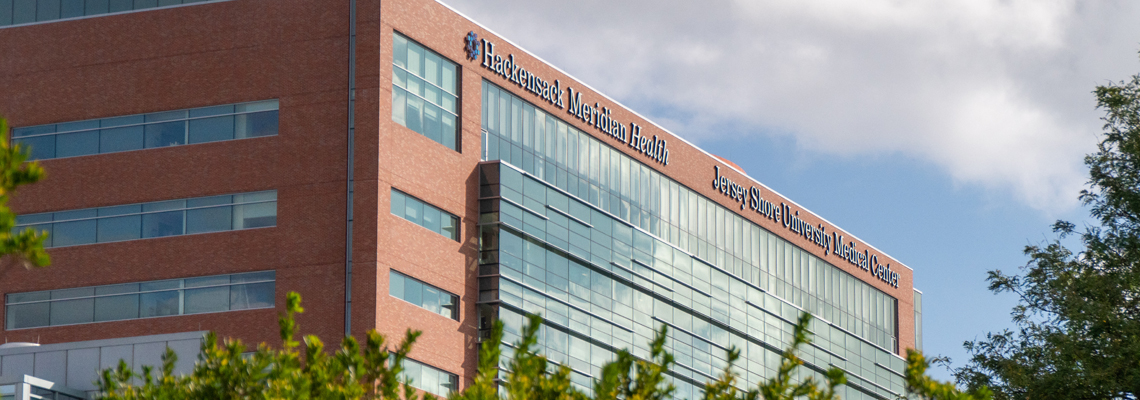Neuropsychology Track
The Neuropsychology Service is a vital component of the Medical Psychology & Neuropsychology Department at Hackensack Meridian Health (HMH), closely integrated with the Neuroscience program. Our service collaborates extensively with neurology, neurosurgery, rehabilitation, and other medical specialties to provide comprehensive neuropsychological care.
Interns will have the unique opportunity to work directly with fellowship-trained neuropsychologists, neurologists, neurosurgeons, rehabilitation specialists, and other trainees, including practicum students, residents, and fellows. Through this experience, interns will gain extensive training in neuropsychological assessment and consultation, learning to administer, score, and interpret a variety of standardized neuropsychological measures. Formal didactic training in neuropsychological testing and cognitive neuroscience complements hands-on clinical experience.
An Intern’s clinical training and experience includes:
- Neuropsychological assessment, report writing, and feedback delivery.
- Consultation in multidisciplinary team conferences supporting the brain tumor, deep brain stimulation (DBS), and epilepsy programs.
- Exposure to both outpatient and inpatient services, including rehabilitation care.
- Supervised experience with diverse neurological conditions referred from neurology, neurosurgery, and physical medicine and rehabilitation.
- Participation in neuroscience grand rounds, journal club, neuroanatomy lectures, and case conferences.
Interns are expected to complete two testing days per week and actively engage in interdisciplinary collaboration to develop a well-rounded skill set in neuropsychological evaluation and intervention.
Clinical Setting
Interns train within Hackensack Meridian Health Jersey Shore University Medical Center (JSUMC) in Neptune, New Jersey, a leading not-for-profit healthcare facility recognized for its excellence in neuroscience, neurology, and neurosurgical services. The program also extends to Ocean University Medical Center (OUMC) in Brick, NJ, providing interns with additional exposure to diverse patient populations and clinical settings. OUMC is also home to Johnson Rehabilitation Institute (JRI), a 40-bed acute rehabilitation hospital, nationally certified for quality treatment and care and specializing in the treatment of traumatic brain injury and stroke. HMH has consistently ranked among the top-performing health systems in New Jersey for clinical quality, offering a rich environment for professional development and advanced neuropsychological training.
Multidisciplinary Collaboration
A core component of the internship is working within interdisciplinary medical teams to provide comprehensive patient care. Interns will collaborate with a variety of healthcare professionals, including:
- Neurologists and Neurosurgeons – Assisting in diagnostic and treatment planning for conditions such as epilepsy, movement disorders, stroke, and brain tumors.
- Physical Medicine & Rehabilitation (PM&R) Specialists – Contributing to cognitive assessment, cognitive rehabilitation planning, and functional recovery strategies.
- Psychiatrists and Psychologists – Engaging in co-treatment approaches for patients with overlapping neurological and psychiatric conditions.
- Speech-Language Pathologists, Occupational and Physical Therapists – Providing integrated cognitive and functional assessments to support rehabilitation goals.
- Social Workers and Case Managers – Addressing psychosocial stressors, patient advocacy, and access to community resources.
Interns will actively participate in multidisciplinary case conferences and team meetings, contributing neuropsychological insights that inform clinical decision-making. These collaborative experiences will enhance their professional identity as clinical neuropsychologists and prepare them for roles in medical, rehabilitation, and academic settings.
Through this holistic and team-based approach, the internship ensures that Interns develop a well-rounded skill set in assessment, consultation, and intervention while gaining the experience needed to work effectively within complex healthcare systems.
Training Model
The Neuropsychology Track follows a scientist-practitioner model, emphasizing the integration of empirical research, clinical expertise, and patient-centered care. The primary training approach is experiential learning, with supervised hands-on opportunities in assessment, intervention, consultation, and professional development. Interns gain expertise in:
- Comprehensive neuropsychological assessment of individuals with neurological disorders in outpatient settings including test selection, administration, scoring, interpretation of results, and oral and written communication of findings.
- Brief, targeted evaluations in inpatient and rehabilitation settings, with a focus on treatment planning and interdisciplinary collaboration.
- Cognitive remediation and rehabilitation strategies for individuals with acquired brain injuries and neurocognitive disorders.
- Professional development, including mentorship in ethical practice, interdisciplinary teamwork, and leadership in clinical neuropsychology.
Supervision is developmentally tailored to interns’ individual training goals and emphasizes a conceptual integration of:
- Adult neuropsychology.
- Behavioral neurology and cognitive neuroscience.
- Neuropsychological assessment and rehabilitation techniques.
This track prepares interns for advanced training in clinical neuropsychology, aligning with Houston Conference guidelines, and provides a strong foundation for future postdoctoral fellowships and board certification pathways.
Didactics
Interns in the Neuropsychology Track will engage in a robust didactic training program designed to enhance their clinical knowledge, professional development, and interdisciplinary collaboration. Didactics will provide a structured learning experience that integrates neuropsychological theory, assessment techniques, and emerging research with practical applications in clinical settings.
Interns will participate in the broader internship didactic schedule (a minimum of 8 hours per month), which occurs weekly on Wednesdays from 10:30 AM to 12:30 PM.
Internship to Fellowship/Postdoctoral Pipeline
The Neuropsychology Internship Track at HMH is designed to provide a strong foundation for interns seeking advanced training in clinical neuropsychology. Interns who successfully complete the required 1,750 hours and demonstrate professional competencies aligned with APA accreditation standards may have the opportunity to transition into a two-year postdoctoral fellowship in neuropsychology within the HMH system at JSUMC.
Our fellowship program follows Houston Conference guidelines, ensuring comprehensive training that prepares fellows for board certification through the American Board of Professional Psychology (ABPP) in Clinical Neuropsychology. The fellowship builds upon the clinical, didactic, and research experiences of the internship year, offering increasing levels of responsibility in neuropsychological assessment, intervention, interdisciplinary consultation, and supervision of trainees.
By maintaining continuity in training, interns who transition to fellowship benefit from familiarity with HMH’s diverse patient population, established mentorship relationships, and access to specialized training experiences in areas such as epilepsy surgery evaluations, deep brain stimulation (DBS) candidacy assessments, and neurorehabilitation. This structured pathway strengthens professional development and enhances career prospects in clinical neuropsychology.
For interns interested in continuing their training within HMH, discussions regarding postdoctoral opportunities typically occur during the latter half of the internship year to facilitate a seamless transition.

